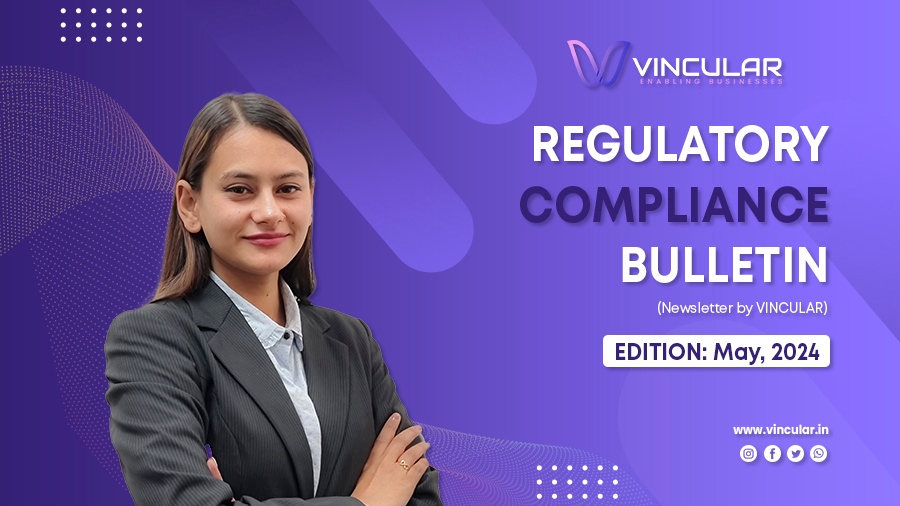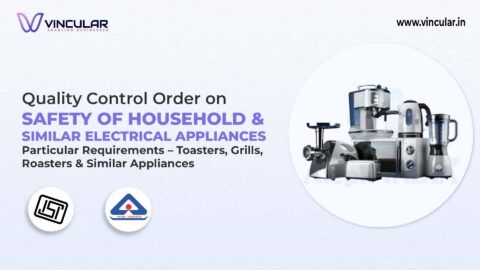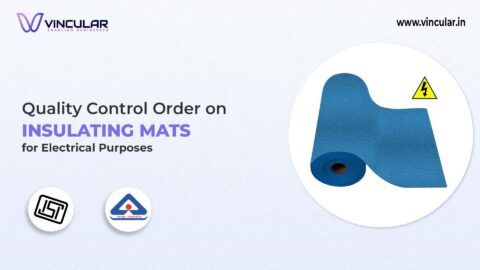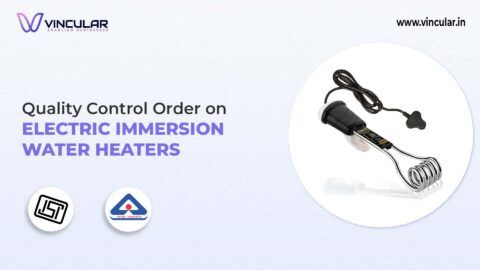TEC
Acceptance of test reports by ILAC-accredited labs extended by one month
TEC has pushed back the date of acceptance of International Technical Test Reports issued by ILAC-accredited labs by one month for a few Phase V products under MTCTE. The new deadline is July 31st, 2024. It is to be noted that the test report must be from a non-border sharing nation to India.
Another important thing to note is that the mandatory certification date for phase V products under MTCTE is still July 1st,2024.
The product categories covered under the scope of this notification are as follows:
- Base station for cellular network for 5G
- 5G core
- Hypervisor
- E-band fixed radio relay systems
- Converged Multi-Service Application Access Equipment
- IP Terminal
Official notification from the regulator can be accessed here.
Non-Applicability on LAN Switch test parameters
TEC has recently designated certain parameters as ‘not applicable’ for LAN Switches. OEMs do not have to test their LAN Switches for these test parameters. The concerned parameters are mentioned below:
| S. No. | Parameter Name | Standard |
| 1. | Ethernet PWE and Service Identification | RFC 4448 Clause 4, Annex-P11 |
| 2. | MPLS TP Requirement | RFC 5654 Clause 2, Annex-P11 |
| 3. | TDM PWE and Service Identification | RFC 3916 Clause 4 & Clause 7.1, Annex-P11 |
In conjunction with the above details, certain parameters have been removed from the non-applicability status. This means that for the OEMs will now have to get testing for these parameters done at a TEC-designated CAB in India.
- IP Multimedia Conferencing Equipment
- RTCP Parameters RFC 3551 Set-A
- RTP Parameters RFC 3550 Set-A
- SIP parameters Set-A
- IoT Gateway
- GPS Compliance
The official notification from the regulator can be accessed here.
Voluntary Security Certification for Session Management Function (SMF) of 5G
The National Centre for Communication Security (NCCS), Department of Telecommunications, Government of India, has announced the Voluntary Security Certification (VSC) of Session Management Function (SMF) of 5G which will be effective from 1st June 2024. The official notification can be accessed here.
Further, kindly note that no administrative fees or Security Test Evaluation Fees will be charged during the VSC period. NCCS has also recently designated one laboratory for testing requirements.
Interested OEMs/importers/dealers/users of telecom equipment can apply for a Voluntary Security Certificate through an online portal accessible at https://nccs.gov.in
Please reach out to us at tec@vincular.in with more questions!
Waste Management
CPCB introduces new rules for used oil management
The Ministry of Environment, Forest, and Climate Change has introduced new rules for used oil, effective from April 1, 2024. Here are the key points:
- Within six months of the regulations’ implementation, producers, including importers dealing with base oil, lubrication oil, and other oils used as lubricants, must register with the Central Pollution Control Board (CPCB) on an online portal.
- The CPCB is currently developing a centralized portal for Extended Producer Responsibility (EPR) registration, expected to be operational by May 2024.
- Until the EPR online portal is launched, importers of base oil, lubrication oils, and other oils used as lubricants can release or clear their consignments by submitting an undertaking to CPCB at eprusedoil.cpcb@gov.in.
These new rules ensure better regulation and environmental management of used oils.
Attention: EPR notification for USED OIL
The Ministry of Environment, Forests, and Climate Change has introduced rules, the Hazardous and Other Wastes (Management and Transboundary Movement) Second Amendment Rules, 2023, through Notification dated September 18, 2023, which is effective from April 1, 2024.
❖ These rules introduce a chapter titled ‘Extended Producer Responsibility for Used Oil’, which outlines key definitions and concepts related to environmentally sound management of used oil.
❖ The entities that shall get them registered by the Central Pollution Control Board on the portal, (a) producers; (b) collection agents (c) recyclers (d) used oil importers.
❖Key Provisions & important definitions mentioned in this chapter include mandatory registration for entities involved in the production of lubrication oil or base oil as well as the collection, recycling and import of used oil.
❖ It highlights that to ensure environmentally sound management entities must fulfil their EPR by recycling used oil through registered recyclers. The rules also outline penalties for providing false information during registration and levy charges based on the volume of used oil handled.
❖The notification also specifies the methods for handling used oil, with an emphasis on producing re-refined base oil or lubrication oil and energy recovery. As per the provided targets, producers and used oil importers are obligated to fulfil their EPR -Extended Producer Responsibility and they can take assistance from third-party organizations but the ultimate responsibility lies with the producer.
❖ The Central Pollution Control Board shall establish an online system for the registration and filing of quarterly and annual returns, EPR certificates and tracing of oil produced or generated by any entity or person, which shall ensure a mechanism wherein the material balance of the lubrication oil introduced in the market by any producer in a financial year is reflected.
Battery Waste
Important Update: Extension under fulfilment of battery waste recycling targets and annual return
The Central Pollution Control Board issued a NOTICE on 30-04-2024 outlining key guidelines regarding Extended Producer Responsibility (EPR) targets for batteries under the Battery Waste Management Rules, 2022.
- All EPR holders are required to fulfil their recycling targets and submit the annual report for FY 2022-23 and 2023-24 by 30th June 2024, as per the notification.
- Producers must ensure timely filing of Annual Returns for FY 2022-23 and 2023-24 on the EPR portal, adhering to the prescribed timelines.
Battery Waste Management Rules, 2022- Office Memorandum
An Office Memorandum issued on 17th May 2024 by The Ministry of Environment, Forest, and Climate Change (MoEF&CC), stating clarification on the Battery Waste Management Rules, 2022.
Key points clarified:
1. The term “minimum use of domestically recycled materials” from now Producers are obligated to use domestically recycled materials in the manufacture of new batteries. This includes materials like lithium, cobalt, aluminium, graphite, paper, plastic, and carbon, sourced from recycled waste products, including old batteries.
2. For the Labelling Requirements if you’re producing batteries or battery packs, make sure they’re marked with the Extended Producer Responsibility registration number on or by March 31, 2025. The importer of the battery or equipment containing the battery may mark the EPR registration number on the equipment or the packaging of the equipment.
E-waste
E-Waste Management Compliance for Producers of 106 EEE Items
As per the E-Waste (Management) Rules 2022, effective from April 1, 2023, producers of 106 Electrical and Electronic Equipment (EEE) must register on the CPCB’s E-Waste Extended Producer Responsibility (EPR) Portal.
Due to ongoing maintenance on the portal since March 20, 2024, producers can have their imported consignments released until June 30, 2024, by submitting an undertaking and proof of submission to CPCB at ewaste2.cpcb@gov.in
Eligible producers (including importers) must also provide a copy of their online EPR Registration certificate to the Customs Authority by June 30, 2024, in compliance with the rules.
For reference, a copy of the E-Waste (Management) Rules 2022 is attached.
Plastic Waste
Important Update for PIBOs & PWPs: Deadline Extension and Compliance Requirements
To enhance security features, the EPR Portal has been undergoing updates from March 18 to April 24, 2024. PIBOs & PWPs experiencing issues during this update period are informed that the deadline for submitting their Registration application on the EPR Portal has been extended until May 31, 2024.
Compliance Action Required:
- State Pollution Control Boards and Pollution Control Committees (SPCBs/PCCs) will make sure that Producers/PWPs receive new or renewed Consent to Operate only after they register on the EPR Portal. The registration number issued to these entities should also be included in the granted Consent.
- The producer, Importer and recycler must not sell plastic packaging commodities in plastic packaging or recycled plastic to Brand-owners who are not registered on the EPR portal, except those falling under the MSME category). They must also include the registration number of these brand owners in the GST E-Invoice for such transactions.
Non-compliance of Obligations:
PIBOs and PWPs were required to register on the EPR Portal under EPR guidelines rules. Failure to register on time does not exempt PIBOs from fulfilling their EPR obligations during the update period.
BEE
Updated Ratings Instructions for Chillers (Water-Cooled and Air-Cooled)
Effective September 18, 2023, chillers were included in the mandatory regime of BEE, covering all types and sizes of vapour compression chillers.
However, as per the recent notification dated May 1, 2024, BEE has updated the rated voltage specifications. The previously rated voltage for the three-phase power supply mentioned as 400V in the Gazette notifications “S.O. 4088 (E) and S.O. 4089(E)” should now be read as 415V.
The link for the official notification can be accessed here
Extension Granted for Submission of Production Data for FY 2023-2024
BEE has come up with an important notification for registered permittee under Standard and Labeling fees which are hereby informed that the department has come up with an extension for submitting the production/sales data accordingly paying of labelling fees for FY 2023-2024 till 31st July 2024.
This extension provides an opportunity to all permittees who are unable to comply with the timely submission of the requisite process for their registered models. If the extended deadline is missed, the portal will be locked and the department may impose a penalty.
Official notification can be accessed through here
Permittee of Refrigerators to Continue Production and Affixing of QR Code
In a follow-up to the notification issued on September 12, 2023, the Bureau of Energy Efficiency (BEE) has provided an update regarding the implementation of QR codes for refrigerators (both frost-free and direct cool). The recent notification states that QR code implementation has resumed and will be effective from May 22, 2024.
All manufacturers and permittees of refrigerators (directly cool and frost-free) registered with BEE are hereby advised to affix the QR code along with the star label on each unit sold, manufactured, or imported in India.
The official notification along with the complete layout for the QR code can be accessed here
DGFT
India Tightens Rules on Electronics and IT Goods in India
To impose stricter rules on importing electronics and IT goods, DGFT has issued a notification dated 20th May 2024 which amended the Foreign Trade Policy (FTP) 2023 and Schedule-I of ITC (HS) 2022 with immediate effect.
Here are the details of the changes:
- Mandatory Product Safety Registration: All electronics and IT goods (New as well as second hand/Refurbished/Repaired/Reconditioned and Notified under Compulsory Registration Order 2021 and meeting labelling guideline of BIS) imported into India against a “Restricted Import Authorization” from DGFT and Import of un-registered /Non-Compliant goods will be “Prohibited”
- Exemptions: Certain consignments may be exempted with a letter from the Ministry of Electronics and Information Technology (MeitY).
- Consequences of non-compliance: Goods that are not registered or do not meet the standards will be banned from import. These items must be re-exported or will be destroyed by customs.
- Randomized Testing for LED Products: LED products and DC or AC-supplied control gears for LED modules as notified by BIS-CRS will undergo random sample testing at BIS-approved labs as per applicable IS standards. Only compliant products will be cleared/ approved, while failed ones will be returned or destroyed at the importer’s expense.
Official notification can be accessed here.
WPC
Continuation to OM No. T-11012/03/2024-ISR dated 14.03.2024 (review and revise NFAP-2022)
In continuation to OM No. T-11012/03/2024-ISR dated 14.03.2024, the constitution of the committee-Chairman (to review and revise NFAP-2022) is as follows:
| Working Group | Scope | Chairman |
| Working Group 1 | Frequency bands up to 1GHz | Sh. Viresh Goel, Wireless Adviser |
| Working Group 2 | Frequency bands 1 GHz to 6 GHz | Sh. N.K. Bhola, Joint Wireless Adviser |
| Working Group 3 | Frequency Bands Beyond 6 GHz | Sh. M. K. Pattanaik, Deputy Wireless Adviser |
The working group Chairman shall identify stakeholders, carry out consultations with the stakeholders and submit reports/ recommendations for revision of NFAP-2022 within six from the date of issuing the O.M.
Voice Compliance
Regulation of OTT services
Regulation of Over-the-Top (OTT) services under Telecom Regulations versus Information Technology (IT) laws has been a subject of significant debate globally, particularly in countries like India where the digital landscape is rapidly evolving. Through this article, let’s explore the nuances and implications of regulating OTT platforms under both of these two regulatory frameworks of India.
Regulatory impact: Telecom regulations
Telecommunications laws (under the Ministry of Communications, Department of Telecommunications) traditionally govern services that involve the transmission of voice, data, or multimedia content over networks. These regulations primarily focus on ensuring fair competition, consumer protection, privacy, and national security.
Regulating OTT services under telecommunications laws implies treating them as similar to traditional telecommunication services like voice calls or SMS. This approach may involve subjecting OTT platforms to licensing requirements, interconnection obligations, quality of service standards, and tariff regulations.
Regulatory impact: Information Technology regulations
The Information Technology laws (under the Ministry of Electronics and Information Technology) typically govern the use of electronic devices, networks, and digital data. These regulations aim to promote electronic commerce, protect intellectual property rights, ensure cybersecurity, and safeguard privacy.
Regulating OTT services under IT laws involves treating them as digital content and service providers, similar to websites, online marketplaces, or social media platforms. This approach may focus on issues such as data protection, content moderation, cybersecurity, and intellectual property rights enforcement.
Discord amongst various parties:
The debate over regulating OTT services under telecommunications versus IT laws amongst various relevant stakeholders including OTT platform providers, Telecom Service Providers (TSPs), IT Ministry and the Ministry of Communications. The advocates of telecommunication regulations emphasize ensuring a level playing field for all service providers in terms of the appropriate distribution of revenue generated by the industries.
The Department of Telecommunications (DoT) had sought to classify OTT platforms as telecommunications services and regulate them like telecom operators. For which the Telecom Regulatory Authority of India (TRAI) issued a consultation paper on how to regulate OTT platforms. However, the IT Ministry believed that internet-based communications services should not be a part of DoT’s jurisdiction. As per the current status, the newly rolled out Telecommunications Act (after several consultations from the industry) does not include OTT services under the umbrella of the definition of telecommunication services.
Conclusion:
This dispute reflects the complexities of the digital era, where traditional regulatory frameworks often struggle to keep pace with technological advancements and changing market dynamics. Finding the right balance between promoting innovation, protecting consumers, and ensuring a level playing field remains a key challenge for policymakers worldwide. Ultimately, any regulatory approach should strive to foster a vibrant and inclusive digital ecosystem that benefits both businesses and users alike.
Foreseeing the developments in the industry, we can expect some drastic changes in the current mechanism.
Regulations under the Telecom Act 2023 to roll out soon
After replacing the old telegraph-centric laws such as the Indian Telegraph Act, of 1885, the Indian Wireless Telegraphy Act, of 1933, and the Telegraph Wires (Unlawful Possession) Act, of 1950, the new Telecommunications Act of 2023, came into force at the beginning of this year.
In a recent update regarding the Telecom Act, the Department of Telecommunications (DOT) indicated that with the formation of the new government, the Telecom Act might undergo certain changes in the rules by September 15th, 2024.
The rules will apply to spectrum allocation regarding satellite communications and spectrum pricing, rules to govern under which circumstances the calls and message interception can be conducted, as well as the gathering of biometric data which involves the collection of unique physical characteristics for identification purposes, such as fingerprints or facial recognition data.
The changes in the rules may establish specific procedures and safeguards for how biometric data is collected, stored, and used in the context of telecom services ensuring security and privacy protection.
As per the Department of Telecommunications (DOT), there might be approximately 35-37 rules that need to be defined for the Act and for this purpose the Department of Telecommunications (DOT) is likely to seek inputs from the Telecom Regulatory Authority of India (TRAI).
ISI
ITEM5: DPIIT Mandates ISI Mark for Telescopic Ball Bearing Drawer Slide
On May 2, 2024, the Department for Promotion of Industry and Internal Trade (DPIIT) introduced a Quality Control Order (QCO) mandating that a Telescopic Ball Bearing Drawer Slide must bear an ISI Mark.
This directive will become effective six months after its publication in the Official Gazette, which is on November 2, 2024.
Micro and Small Enterprises (MSEs) are given different timelines for compliance:
- Small Enterprises have until February 2025.
- Micro Enterprises have until May 2025.
This regulation represents a significant stride by the government to ensure that these industries adhere to stringent standards, safeguarding consumer well-being and enhancing industry competitiveness.
For further information refer to the official notification here.
FSSAI
FSSAI ban trade/commercialisation of Human/ Mother’s milk
The country’s food regulator – the Food Safety and Standards Authority of India (FSSAI) has banned the processing or commercialisation/sale of human milk.
This means immediate effects, all the activities related to the commercialization, and processing of human milk/mother milk and its products must cease immediately.
Any Food Business Operators (FBOs) found violating this directive will face strict action.
Additionally, FSSAI has instructed State and Central Licensing Authorities to ensure that no licenses or registrations are granted to FBOs involved in the processing or commercialization of human milk and to conduct frequent surveillance to enforce this regulation.
Stay Updated, Stay Compliant – Subscribe to our Newsletter Now!
Whether it’s important compliance notifications or changes in policies and regulations, we’ve got it covered.
Get your monthly dose of vital updates by subscribing to our LinkedIn Newsletter or WhatsApp Channel. You can also, watch our Publication Space to stay updated.
Moreover, for regulatory compliance services like TEC Certification, ISI Certification, BIS Registration, BEE Registration, WPC/Wireless Approval, Waste Management, Legal Metrology, CDSCO Certification, etc. Kindly, reach out to us at info@vincular.in or contact us at +91 80888 05577




